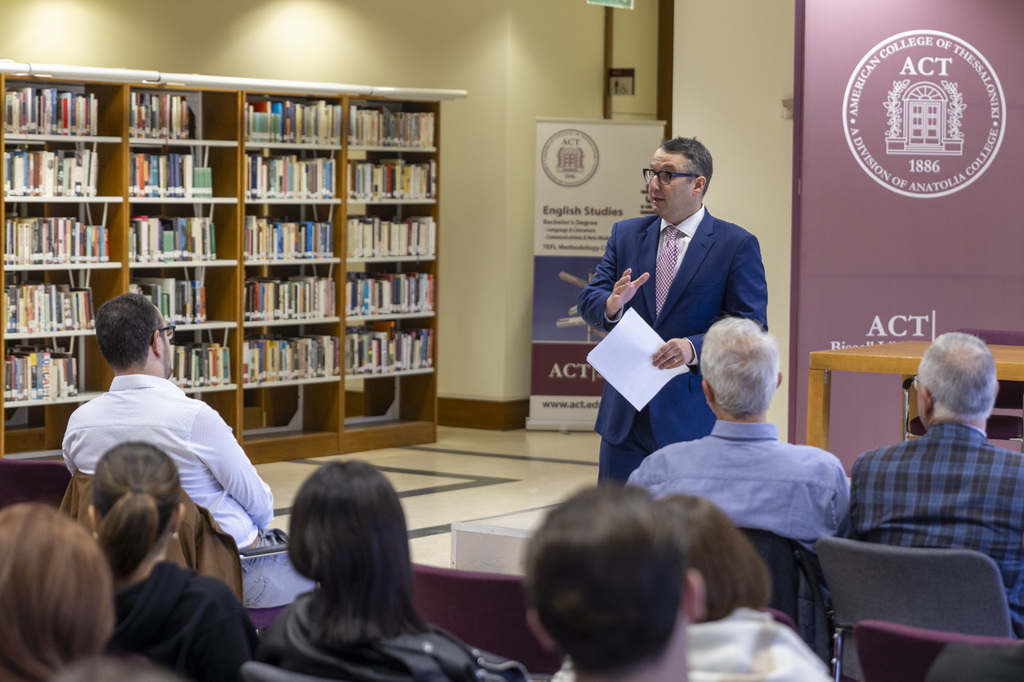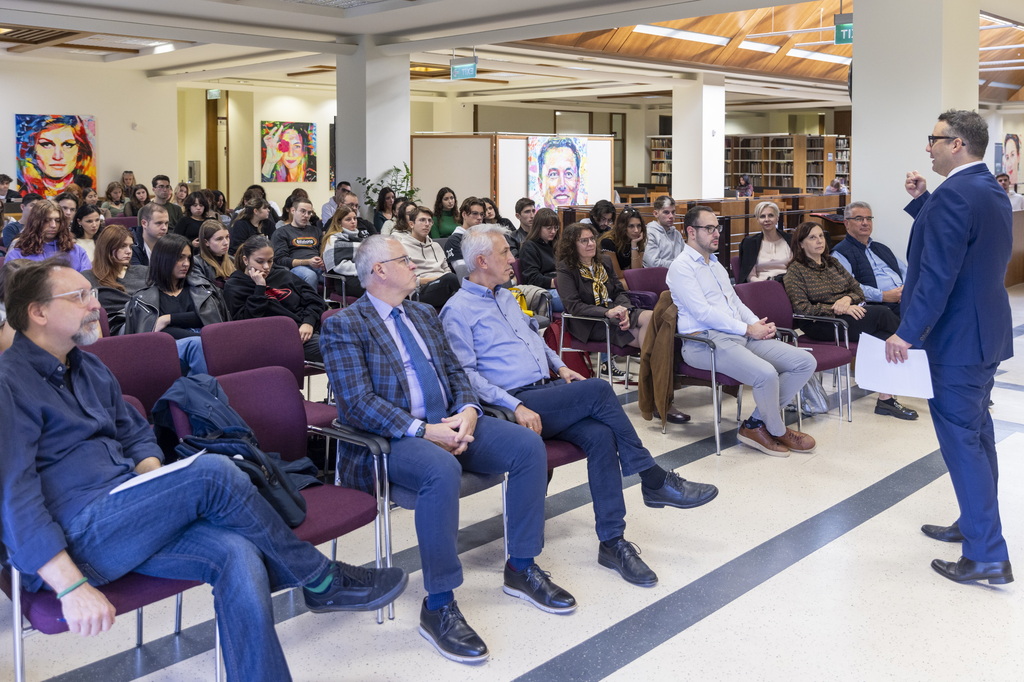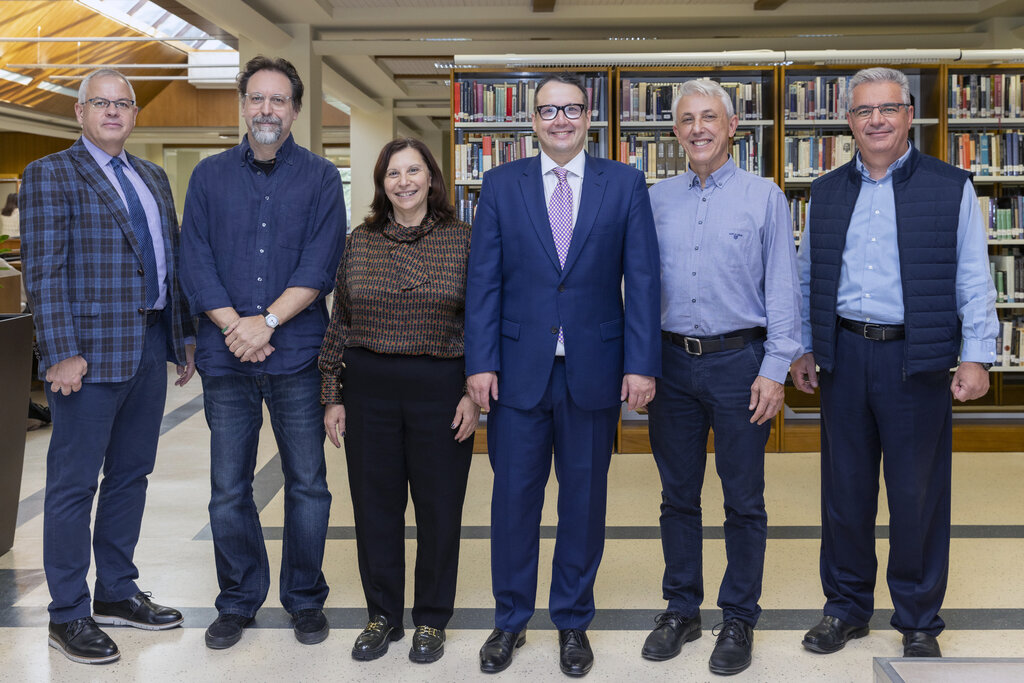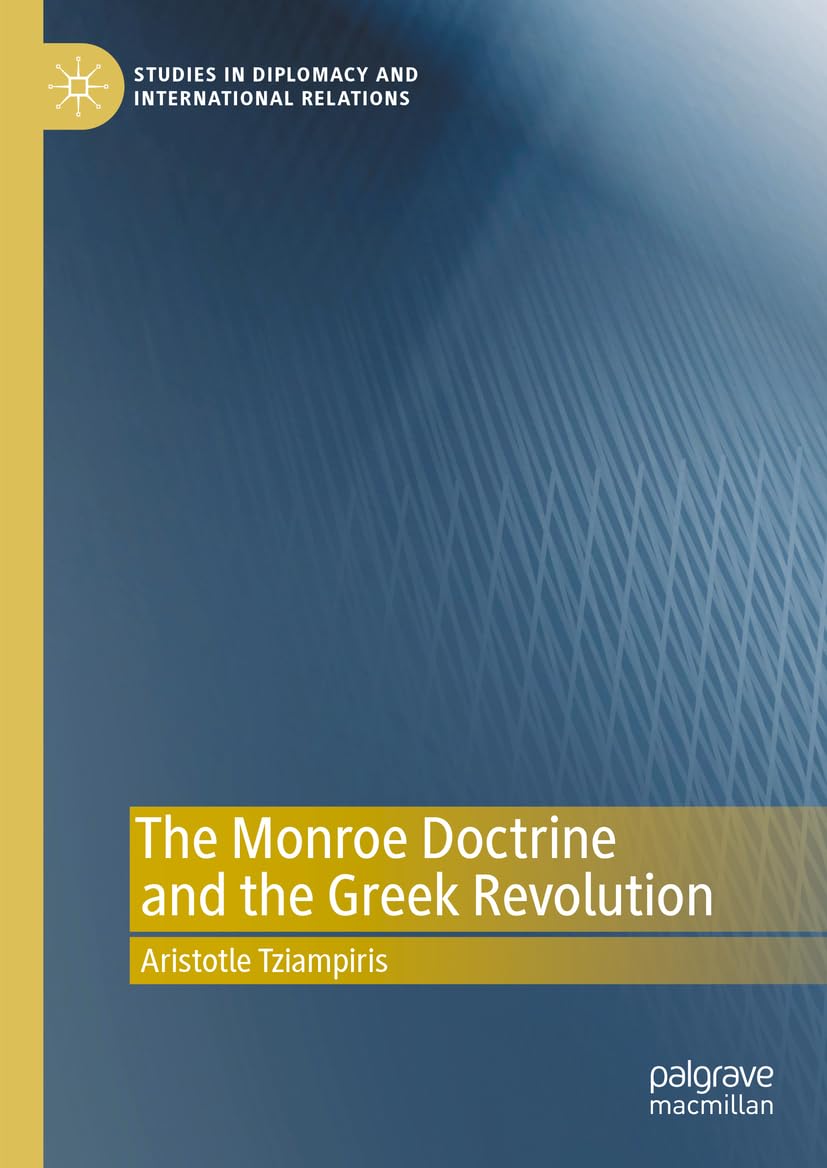Exploring the Monroe Doctrine and Greek-American Relations with Professor Aristotelis Tziampiris

On Tuesday, November 14th, 2023, ACT students and faculty attended an intellectually stimulating experience as Dr. Tziampiris, Professor of International Relations and Chair of the Department of International and European Studies, University of Piraeus, took center stage to deliver a thought-provoking public lecture, titled "The Monroe Doctrine and Greek-American Relations."
The lecture at the Bissell Library of ACT left an indelible mark on all attendees, as Dr. Tziampiris discussed the effects of the Greek Revolution and the Monroe Doctrine on defining Hellenic-American relations for the following centuries. The well-attended event welcomed students and faculty of ACT, with the support of Dr. Panos Vlahos, President of Anatolia College, Dr. Stamos Karamouzis, ACT Provost and Vice President for Academic Affairs, Dr. Maria Kyriakidou, Chair of Humanities Division and Social Sciences at ACT, Dr. David Wisner, Professor of Political Science and International Relations and Executive Director of ACT Dukakis Center, Dr. Christos Aliprantis, Adjunct Professor of Social sciences, and Dr. Joseph Michael Gratale, Professor of Political Sciences and International Relations, who introduced AristotleTziampiris to the audience.


The lecture covered different significant figures in American history and their communication with Greek leaders while illuminating a critical piece of history highlighting contemporary relations between nations. Dr. Tziampiris outlined through this thorough research that the 1821 Greek Revolution elicited widespread and multifaceted support from America's free citizens, regardless of region, class, wealth, sex, religion, or partisan affiliation. The "Greek Fire" burned bright and intense in nineteenth-century America and captivated the American public. Nevertheless, the promulgation of the Monroe Doctrine led to the non-recognition of the republican Greek revolutionaries. Forged by the interaction of multiple forceful personalities operating within specific institutions and representing a high point for the well-established tradition of neutrality in international affairs, the Doctrine aimed to navigate the treacherous headwinds of Great Power politics.
Dr.Tziampiris effortlessly navigated complex concepts, making them accessible to attendees at all levels of familiarity with the subject. An interactive Q&A discussion followed, with students engaging in conversation and reflecting on the insights gained by the lecture.


From left: Peter Chresanthakes, Vice President for Institutional Advancement, Dr. Joseph Michael Gratale, Professor of Political Sciences and International Relations at ACT, Dr. Maria Kyriakidou, Chair of Humanities Division and Social Sciences at ACT, Professor Aristotle Tziampiris, Dr. Panos Vlahos, President of Anatolia College, Dr. Stamos Karamouzis, ACT Provost and Vice President for Academic Affairs
- Aristotle Tziampiris is Professor of International Relations and Chair of the Department of International and European Studies at the University of Piraeus, as well as Director of the MSc Program in American Studies: Politics, Strategy & Economics (taught in cooperation with New York University's Center on Global Affairs). He is also the President of the Council for International Relations-Greece (CFIR-GR), a member of the Board of Directors of "Study in Greece", Visiting [Non-Resident] Scholar at the Center on Public Diplomacy of the University of Southern California (USC), Standing Fellow at New York University's Remarque Institute, Honorary Supporter of the Benaki Museum and "Champion" of Women Act (Greece).

- Professor Tziampiris is the author of The Monroe Doctrine and the Greek Revolution (Palgrave Macmillan, 2023); The Emergence of Israeli-Greek Cooperation (Springer, 2015); Faith and Reason of State: Lessons from Early Modern Europe and Cardinal Richelieu (Nova Science, 2009); Kosovo's Endgame: Sovereignty and Stability in the Western Balkans (IAA, 2006); International Relations and the Macedonian Question (ELIAMEP, 2003) [in Greek]; Greece, European Political Cooperation and the Macedonian Question (Ashgate Press, 2000); co-editor (with Foteini Asderaki) The New Eastern Mediterranean Transformed: Emerging Issues and New Actors (Springer, 2021); co-editor (with Spyridon Litsas) The New Eastern Mediterranean: Theory Politics and States in a Volatile Era (Springer, 2019), co-editor (with Spyridon Litsas) Foreign Policy Under Austerity: Greece's Return To Normality? (Palgrave Macmillan, 2016), and co-editor (with Spyridon Litsas) The Eastern Mediterranean in Transition: Multipolarity, Politics, and Power (Ashgate Press, 2015).




